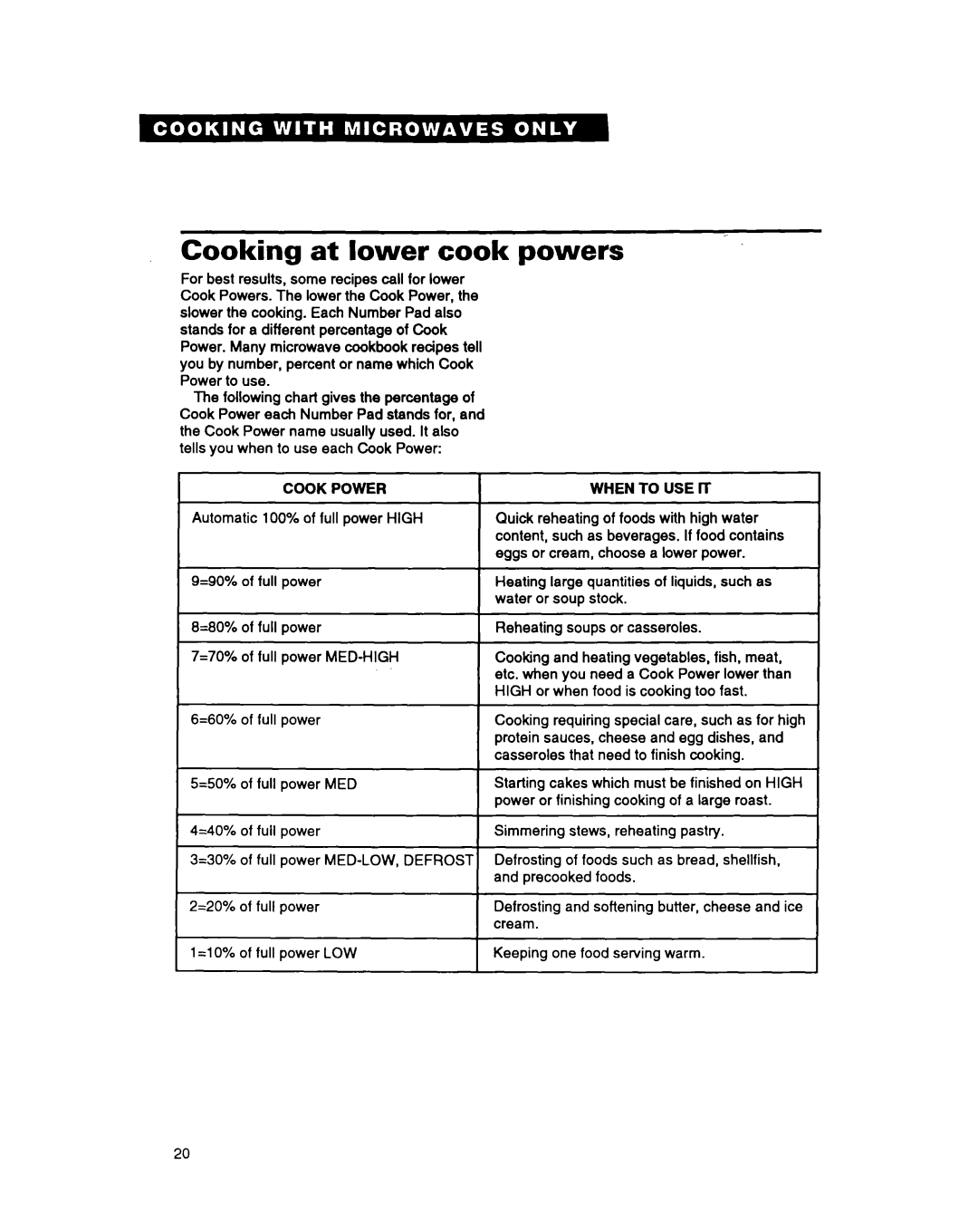
Cooking at lower cook powers
For best results, some recipes call for lower Cook Powers. The lower the Cook Power, the slower the cooking. Each Number Pad also stands for a different percentage of Cook Power. Many microwave cookbook recipes tell you by number, percent or name which Cook Power to use.
The following chart gives the percentage of Cook Power each Number Pad stands for, and the Cook Power name usually used. It also tells you when to use each Cook Power:
COOK POWER
Automatic 100% of full power HIGH
WHEN TO USE f-T
Quick reheating of foods with high water content, such as beverages. If food contains eggs or cream, choose a lower power.
9=90% | of full | power | Heating large | quantities of liquids, | such as | |
|
|
|
| water or soup | stock. |
|
6=80% | of full | power |
| Reheating soups or casseroles. |
| |
7=70% | of full | power |
| Cooking and heating vegetables, | fish, meat, | |
etc. when you need a Cook Power lower than HIGH or when food is cooking too fast.
6=60% of full power
5~50% of full power MED
4=40% of full power
3=30% of full power
2=20% of full power
1~10% of full power LOW
Cooking requiring special care, such as for high protein sauces, cheese and egg dishes, and casseroles that need to finish cooking.
Starting cakes which must be finished on HIGH power or finishing cooking of a large roast.
Simmering stews, reheating pastry.
Defrosting of foods such as bread, shellfish, and precooked foods.
Defrosting and softening butter, cheese and ice cream.
Keeping one food serving warm.
20
